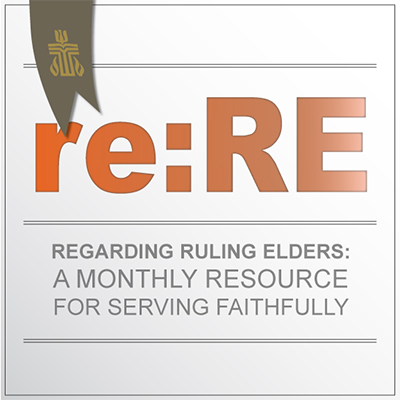The beginning of fall and a new school year also brings the start of new children’s curriculum in the church. It seems like almost every year, the first highlight is one of the most wonderful stories of the Bible: Genesis 1, the story of Creation. Within it is the reminder that, even if we cannot remember the specific aspect of Creation on each day, the most important thing the author wants us to remember is this phrase: “And God saw that it was good.
In Hebrew, the word “good” is translated as טוֹב (tov), and it holds deep and multifaceted meanings, especially in the context of the Genesis story. Tov generally means “good” in the sense of being pleasant, functional, or desirable. It encompasses goodness in a broad sense — something that is beneficial, pleasing, or in harmony with its purpose. It speaks to wholeness and completeness, about something fully functional, complete, and fulfilling. Each element of creation is in its right place, contributing to the balance of the world. Tov can also reflect Creation’s alignment with God’s will. Each created thing is good because it fits within God’s design for the world, and it is deserving of God’s love. Creation reflects the divine order and intention of God, functioning as it was meant to. In some cases, tov also implies that Creation is not just functional but also pleasing and beautiful. God delights in the goodness of Creation, and we should as well.
The Presbyterian Church (U.S.A.) has a well-established commitment to caring for Creation, rooted in its understanding of the Bible, theology and social justice. Creation is very good! It sees care for God’s Creation as an essential part of Christian faith and discipleship, recognizing our role as stewards of the Earth. Human beings are not owners of Creation but caretakers, responsible for its sustainability and flourishing for future generations. The church also recognizes that the need for environmental justice is urgent, and that environmental degradation disproportionately impacts marginalized communities — especially poor, Indigenous, and minoritized populations. The PC(USA) General Assembly has adopted several important statements, actions, and documents, including “Restoring Creation for Ecology and Justice,” which outlines a theological and practical approach to Creation care, calling on all Presbyterians to make the restoration of Creation a central mission priority for the church. Also encouraged for consideration is the “The Earth Care Pledge,” which encourages congregations and individuals to engage in practices that reduce their environmental impact, to advocate for environmental policy changes and to work towards sustainability.
Ruling elders can play a vital role in helping members live into the ministry of caring for God's Creation. Lead by example and encourage others by taking concrete steps, such as:
- Organizing or promoting educational programs on environmental stewardship, encouraging members to learn about and discuss the theological importance of caring for Creation.
- Working with the pastor and other church leaders to incorporate themes of Creation care into worship services, prayers and sermons, highlighting the connection between faith and environmental stewardship.
- Collaborating with church leadership to adopt sustainable practices in church operations, such as energy efficiency, waste reduction, and eco-friendly materials for church operations and events.
- Encouraging the congregation to participate in local environmental efforts, such as tree planting, beach clean-ups, recycling drives and advocacy for environmental justice.
- Promoting individual and congregational commitments to lifestyle changes that reflect care for God's Creation, such as reducing plastic use, conserving water and supporting sustainable businesses.
By modeling and encouraging these actions, ruling elders can inspire the congregation to integrate Creation care into the church’s faith journey. In doing so, contributions can be made to the church’s witness, affirming what Genesis declares — that everything in Creation is pleasant, functional, beneficial, harmonious and beautiful. All that God created is good, and children deserve to inherit a world that reflects God's will and goodness.
For Reflection:
- What does the word "good" (טוֹב, tov) mean to you when you think about Creation? How does its broader meaning of harmony, completeness and beauty shape your understanding of the Genesis Creation story?
- In what ways do you see your role as a ruling elder as contributing to the care and stewardship of Creation? What specific actions could you take to lead by example in this area?
- Environmental justice is highlighted as a critical issue, especially for marginalized communities. How can your congregation engage more actively in environmental justice, and what steps can you take to make a meaningful impact locally and globally?
- What practical steps can your congregation take to help children and future generations appreciate the goodness of Creation and embrace their responsibility as stewards of the Earth?
Marissa Galván-Valle is a minister of Word and Sacrament in the Presbyterian Church (U.S.A.). She is the senior editor for Spanish Language Resources in the Presbyterian Publishing Corporation and temporary pastor at Beechmont Presbyterian Church, an intercultural church that worships each Sunday in Spanish and English. She was ordained as a ruling elder when she was 21 years old.
Throughout 2023 and 2024, monthly “Regarding Ruling Elders” articles will alternate between a deep dive into the ways ruling elders discern and measure the life of a congregation through the ministry of members and stories about how ruling elders are using their call and gifts as they move within and beyond the walls of the congregation.
Subscribe to receive notifications of monthly Regarding Ruling Elders articles. Visit the PC(USA) Leader Formation website for more resources for ruling elders and deacons. For more information, email Martha Miller, editor of “Regarding Ruling Elders.”

